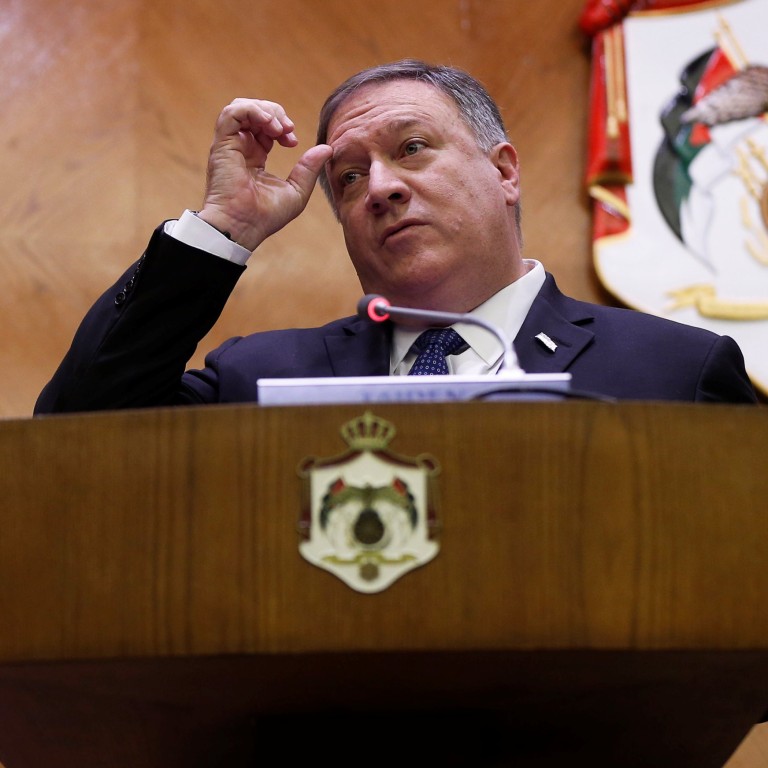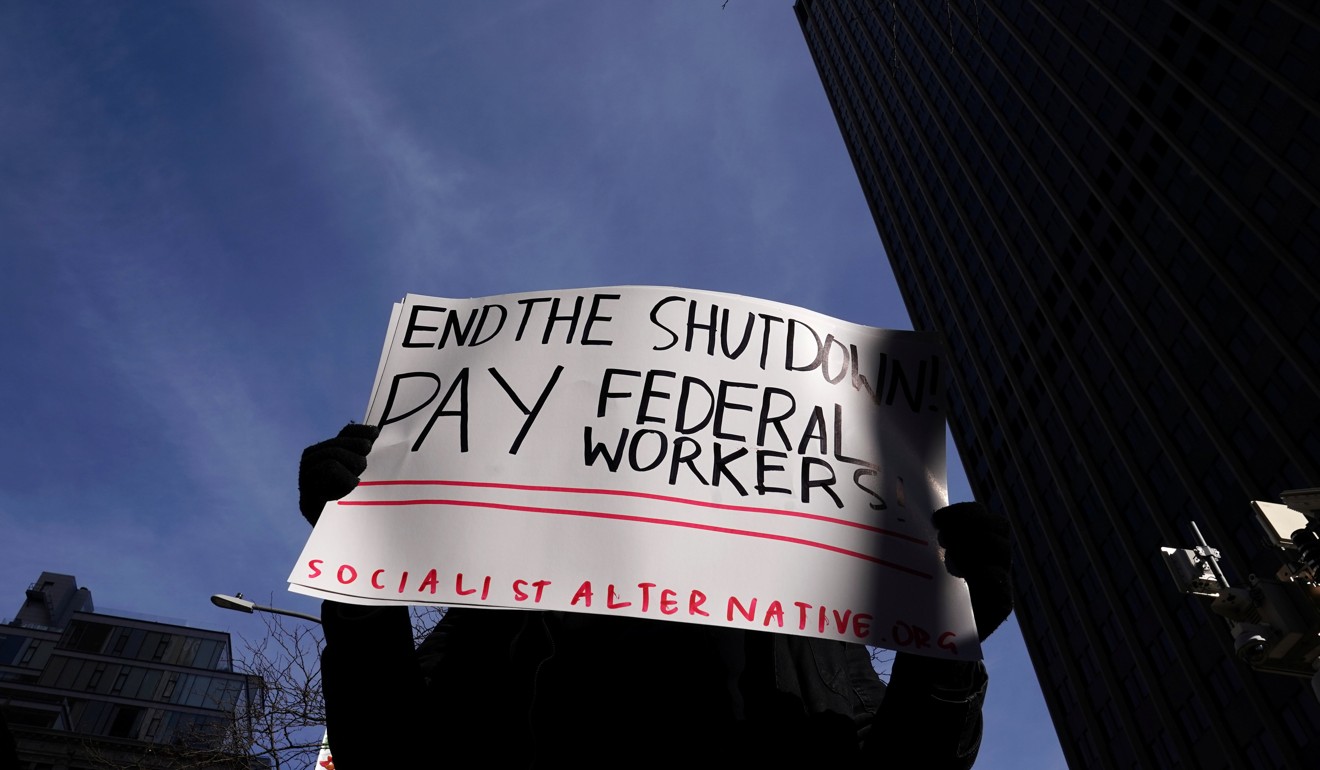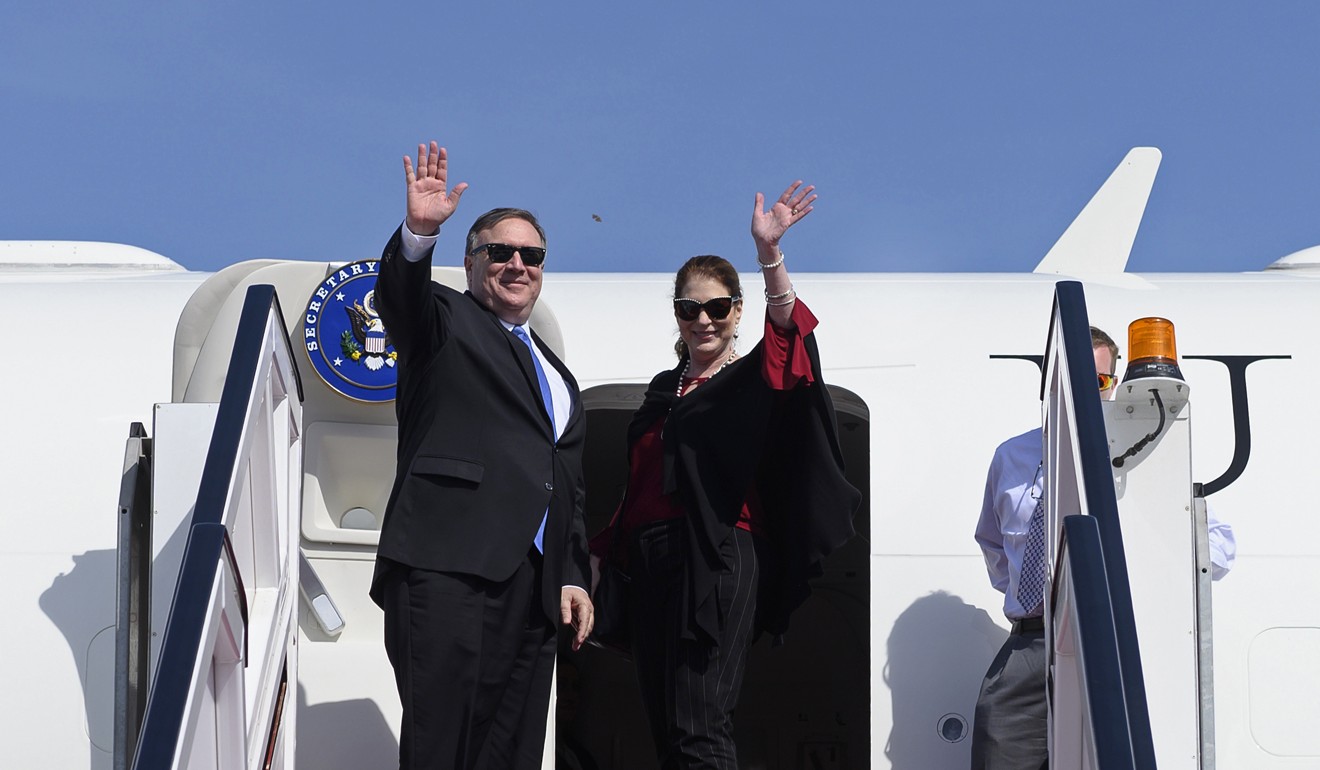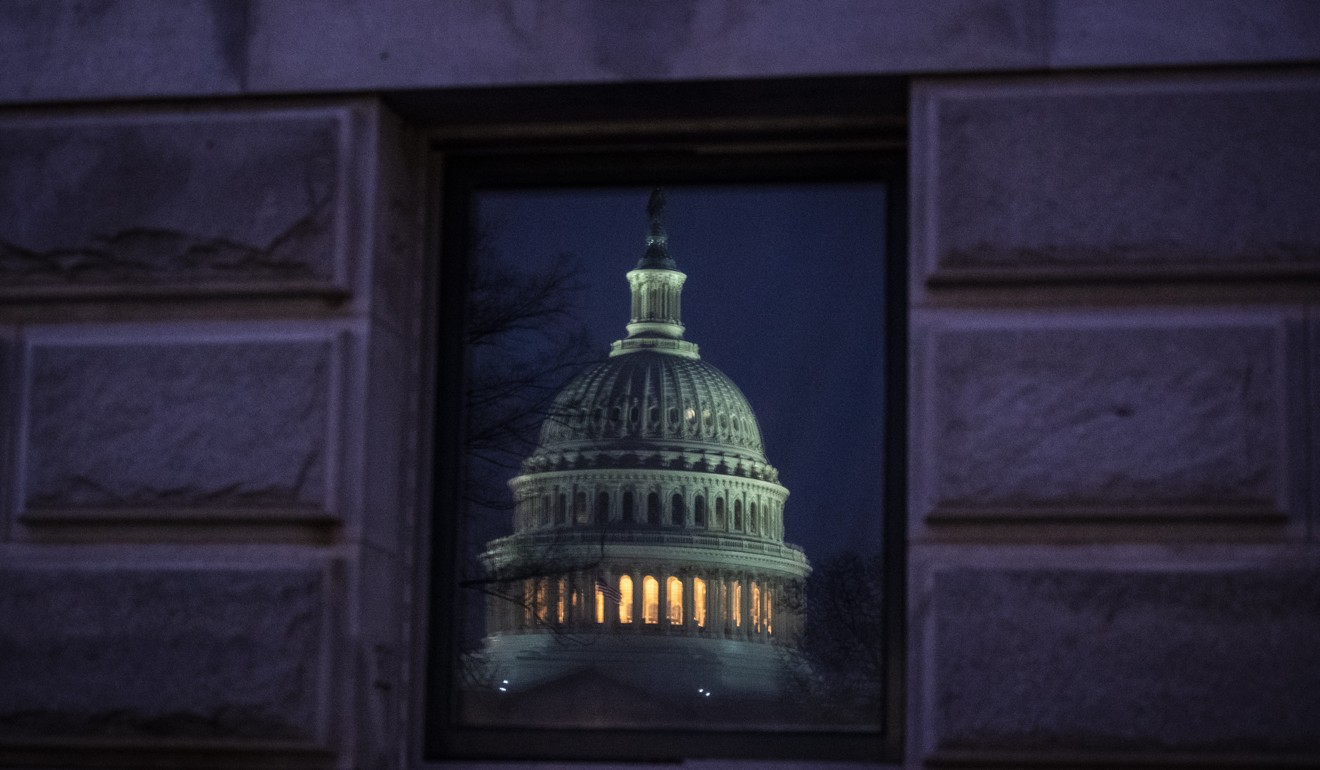
Politico | Shutdown strains US diplomacy around the world
- US State Department staff overseas are grumbling about navigating the shutdown and questioning Secretary of State Mike Pompeo’s choices
This story is published in a content partnership with POLITICO. It was originally reported by Nahal Toosi on politico.com on January 15, 2019.
US Secretary of State Mike Pompeo declared this weekend that “morale is good” among US diplomats despite the government shutdown – but many of his staffers tell a different tale.
In Foggy Bottom and at US embassies around the world, State Department employees are growing increasingly anxious about the effects of the shutdown on their finances, their lives and the diplomatic programmes they’ve worked hard to promote.
Unlike many US-based government workers, State employees posted overseas face challenges in seeking side income.
And some diplomats are irked that Pompeo, who leads an agency dedicated to fostering better global ties, has defended Trump’s willingness to keep the government shut unless he gets funding for a border wall between America and Mexico.

The discomfort will be on display this week in Washington, DC, where Pompeo has decided to go ahead and hold a conference of US ambassadors.
Dozens of the envoys will fly in from US embassies abroad for the two-day affair, prompting grumbling among some rank-and-file employees worried that the gathering will strain the agency’s already thin shutdown staffing.
“It’s just a very strange time,” a US diplomat posted abroad wrote to POLITICO.
“No pay equals lower morale.”
Shutdown’s economic damage: US$1 billion a week
Numerous Civil and Foreign Service officers on State’s payroll in Foggy Bottom or overseas are furloughed or working without pay in largely vacant offices with little backup, even as tasks and paperwork pile up.
January 17 paycheques for many Foreign Service staffers are likely to be for $0.
Pompeo is back in the United States after a weeklong swing through the Middle East. Throughout the trip, Pompeo has spoken highly of how American diplomats have been handling the record-long shutdown, now in its 25th day.
“They understand that there are squabbles in Washington, but their mission remains, their duties continue,” Pompeo said while in Abu Dhabi.
“And they’re executing them.”
The secretary also wrote to the department’s workforce, expressing his gratitude for their dedication: “Your contributions to our country do not go unnoticed.”
Pompeo may be striving for an appearance of normalcy, but some current and former diplomats say some of his decisions are dampening morale instead of boosting it.
For instance, while few quibble with Pompeo’s decision to go ahead with his Middle East trip, given US interests in the volatile region, many were unhappy that he brought along his wife, Susan.

“It was wrong to bring his wife, who requires extra staffing,” argued Dana Shell Smith, a former US ambassador to Qatar.
“A simple nod to the shutdown would have been taking her piece out of the trip.”
Pompeo, however, has defended his decision to bring his wife, who has long been a member of his inner circle. He said that by meeting with a range of US diplomats and foreign officials, Susan Pompeo acts as a “force multiplier”.
“She is here on a working trip doing her best to do as you would see a military leader’s spouse do, executing – trying to help the State Department be better,” Pompeo said, even promising that Susan Pompeo will “write up her thoughts and comments” on what she learned.
Pompeo’s decision to go ahead with the ambassadors conference, slated for Wednesday and Thursday in Washington, is drawing more criticism.
A serving State Department staffer in Washington, who like most others interviewed for this story requested anonymity because of a lack of permission to speak to media, asserted that Pompeo should have cancelled or postponed the gathering of American envoys.
“We don’t have enough staff to support our ambassador,” the staffer wrote to POLITICO, not naming the specific envoy.
“He wants to do all sorts of outside meetings, too. It’s ridiculous.”
Others, however, insist that the conference is a helpful event, especially for newer ambassadors, though some questioned as to whether it genuinely rose to an “essential” activity under the shutdown. The ambassadors gathered will get a chance to network, learn the latest on the Trump administration’s policies and hear from top US officials such as Vice-President Mike Pence, who will deliver a speech to the group on Wednesday.
“Getting all chiefs of mission to DC is a big deal. Not easily rescheduled,” a senior State Department official said.
“But organising it is a big lift and lots of people are working overtime, because their offices are short-staffed.”
A State Department spokesman defended Pompeo’s decision to hold the gathering.
“We are working to minimise the costs as responsible stewards of our taxpayer dollars,” the spokesman said.
“The conference will use State Department facilities and staff, and speakers are largely drawn from within the US government.”
The shutdown’s effects vary greatly across the State Department, whose roughly 75,000-member workforce worldwide is drawn from different streams of workers, including the Foreign Service and the Civil Service.

For instance, citizens of a foreign country who work for the State Department – so called “local hires” – are, broadly speaking, still getting paid because of local laws that protect them.
But if the shutdown drags on, there are fears that funding for those hires will dry up.
That could be disastrous given how much US officials rely on local hires to help navigate some countries.
“In a lot of places that will mean that we lose them,” the US diplomat posted abroad said, referring to local hires in developing nations.
“They simply can’t afford to go weeks without paycheques.”
Around 26 per cent of State Department’s American employees overseas and around 42 per cent in the United States are furloughed, according to State’s press office.
The State Department is still offering visa and passport services, in large part because those services are covered by fees.
And the mere nature of the department’s work, including engaging in diplomacy in war zones, means that many of its missions are deemed “essential” and cannot be shut down, even if the workers aren’t getting paid.
Still, even those with “essential” missions are negatively affected. Getting “paper cleared” – meaning, decisions made -has become difficult in part because it’s not always easy to figure out who is in and who is out.
“We got caught in a labyrinth of ‘out-of-office’ messages instructing us to contact backups,” said the serving State staffer in Washington.
Like other federal employees, State Department staffers said they are concerned about how to cover credit card bills, mortgages and other financial obligations.
Even more senior diplomats, who tend to get paid more, are worried about watching their savings shrink if the shutdown drags on for months.
Such a prospect – once unthinkable – is now being openly discussed as Democrats and Republicans remain at an impasse over Trump’s request of US$5.7 billion to build a wall along the southern border. Neither side has budged despite weeks of intermittent negotiations and no solution is in sight.
Diplomats abroad pointed out that it’s harder for them to seek unemployment benefits – as some government staffers in the US have done – or try to drum up extra income for side jobs, especially when local regulations prohibit the latter.
Some staffers posted overseas rely on one income because their non-diplomatic spouse isn’t working.
But several diplomats said the biggest cost may be to America’s international reputation.
“Programmes that we have been working on for months, if not years, have come to a screeching halt,” a US diplomat serving in Africa wrote to POLITICO.
“From soft power diplomacy programmes like visiting Fulbright scholars and cultural exchanges, to more critical projects in conflict zones … everything has stopped.”
The diplomat added that it’s “embarrassing” to have to tell local partners “sorry we are putting things on hold because we are shutting down until further notice.”
Some diplomats were especially unhappy that Pompeo, in his letter about the shutdown, defended Trump’s decision to push for the border wall.
Diplomats “tend to focus on building bridges, not walls,” the senior State official said.
“The wall as a justification for a shutdown is awful policy.”

